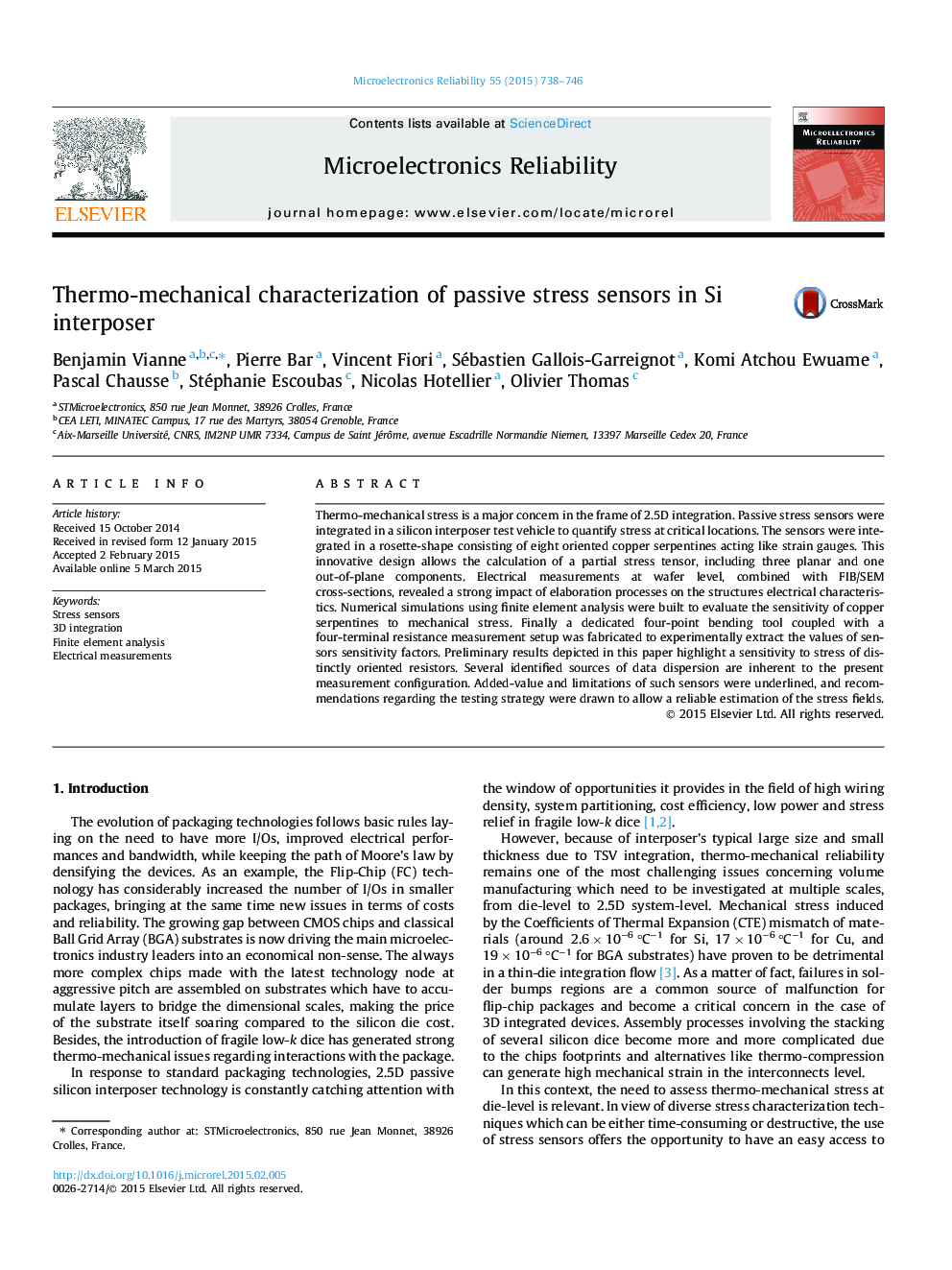| Article ID | Journal | Published Year | Pages | File Type |
|---|---|---|---|---|
| 544780 | Microelectronics Reliability | 2015 | 9 Pages |
•Passive stress sensors are embedded in an interconnect level of a silicon interposer.•Their innovative design is based on a rosette-shape of eight copper serpentines.•Impact of elaboration processes on sensors is characterized.•A methodology was built up to numerically extract gauge factors of serpentines.•Sensors sensitivity is assessed using four-point bending and electrical measurement.
Thermo-mechanical stress is a major concern in the frame of 2.5D integration. Passive stress sensors were integrated in a silicon interposer test vehicle to quantify stress at critical locations. The sensors were integrated in a rosette-shape consisting of eight oriented copper serpentines acting like strain gauges. This innovative design allows the calculation of a partial stress tensor, including three planar and one out-of-plane components. Electrical measurements at wafer level, combined with FIB/SEM cross-sections, revealed a strong impact of elaboration processes on the structures electrical characteristics. Numerical simulations using finite element analysis were built to evaluate the sensitivity of copper serpentines to mechanical stress. Finally a dedicated four-point bending tool coupled with a four-terminal resistance measurement setup was fabricated to experimentally extract the values of sensors sensitivity factors. Preliminary results depicted in this paper highlight a sensitivity to stress of distinctly oriented resistors. Several identified sources of data dispersion are inherent to the present measurement configuration. Added-value and limitations of such sensors were underlined, and recommendations regarding the testing strategy were drawn to allow a reliable estimation of the stress fields.
